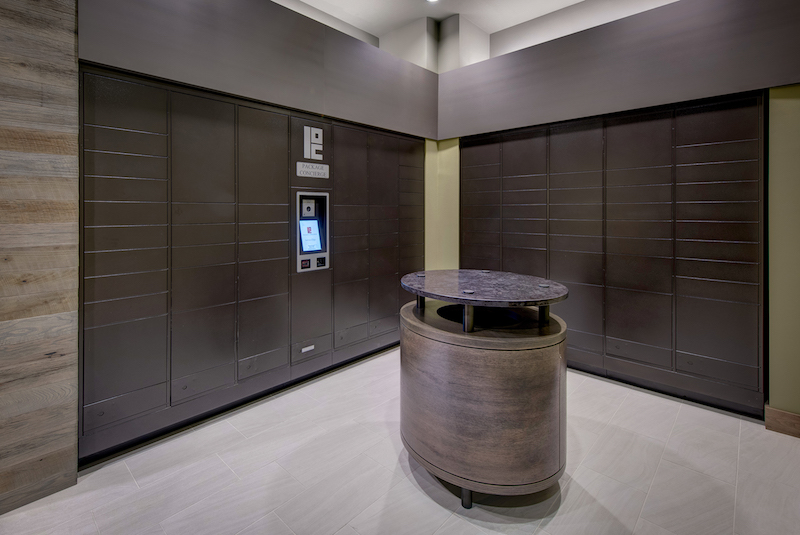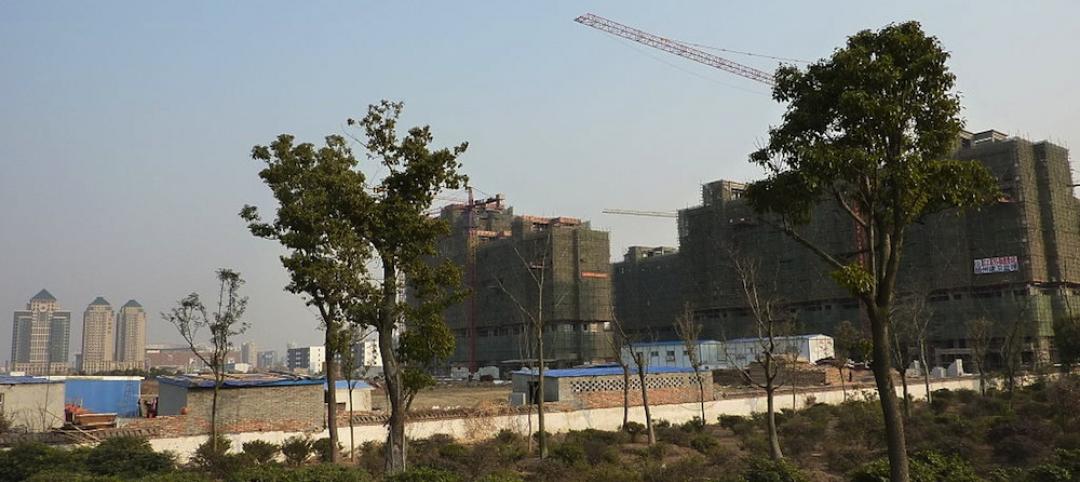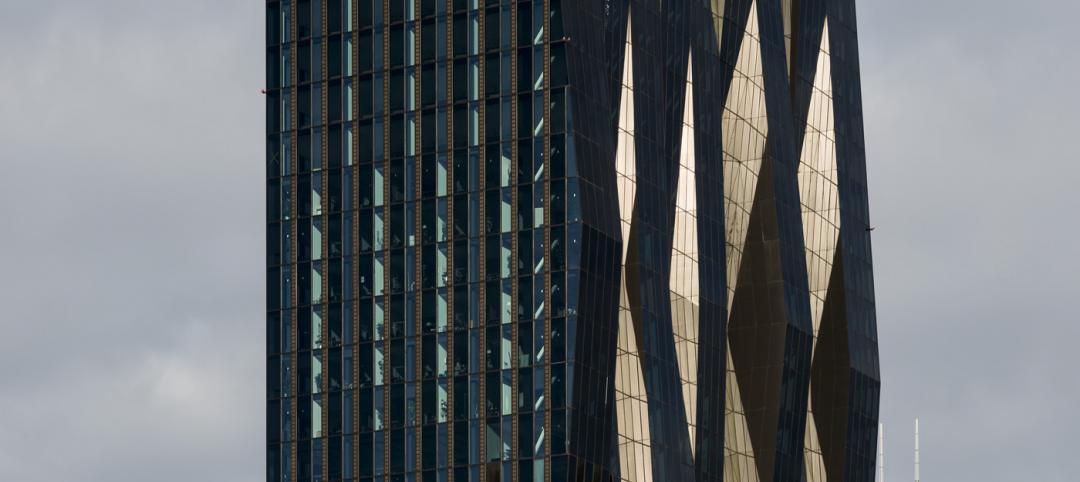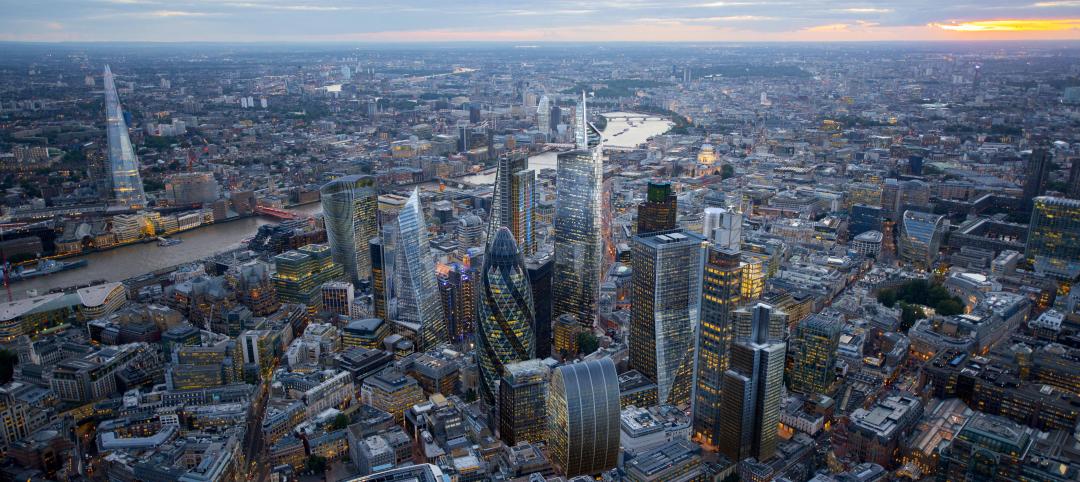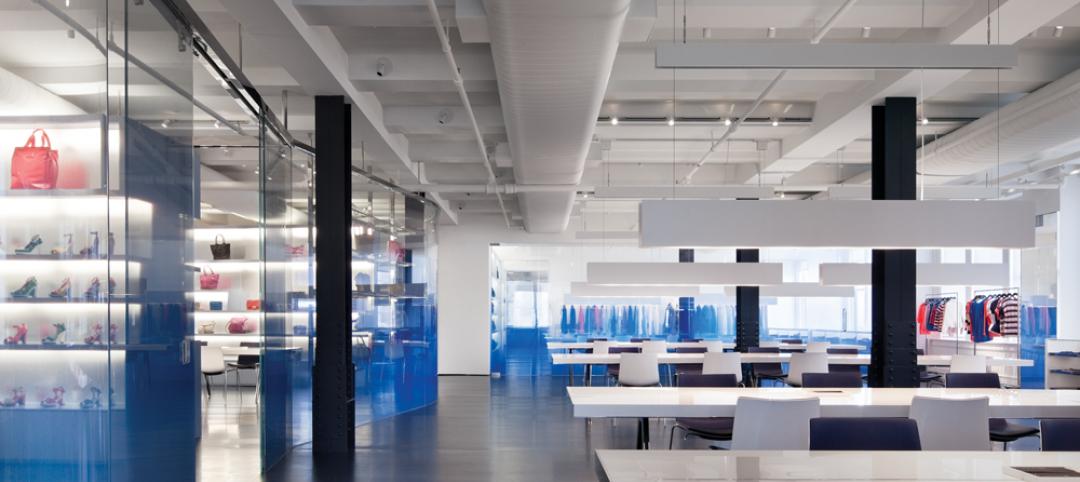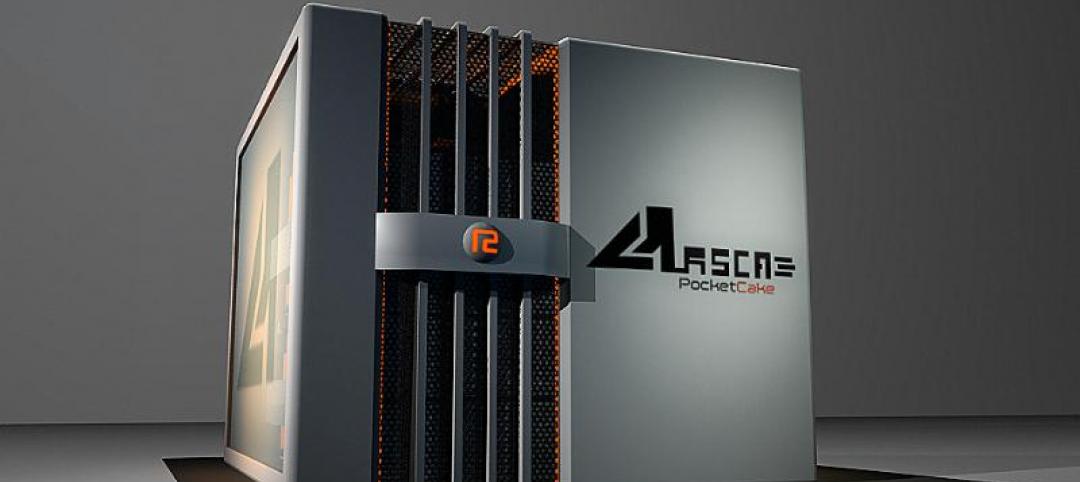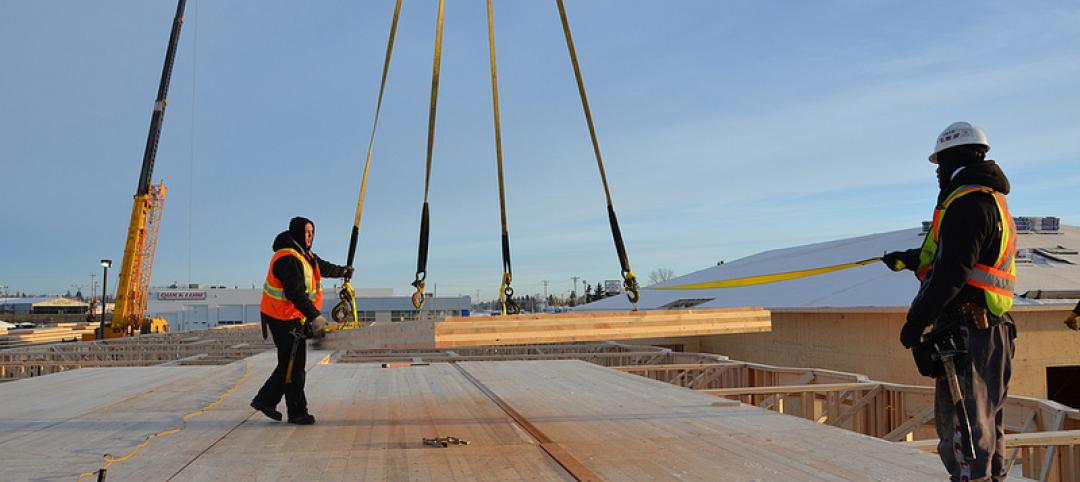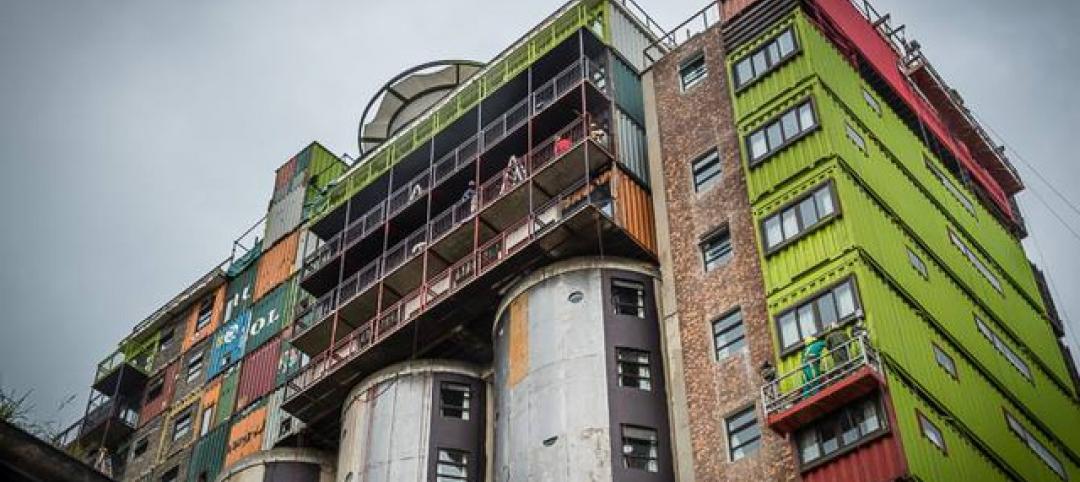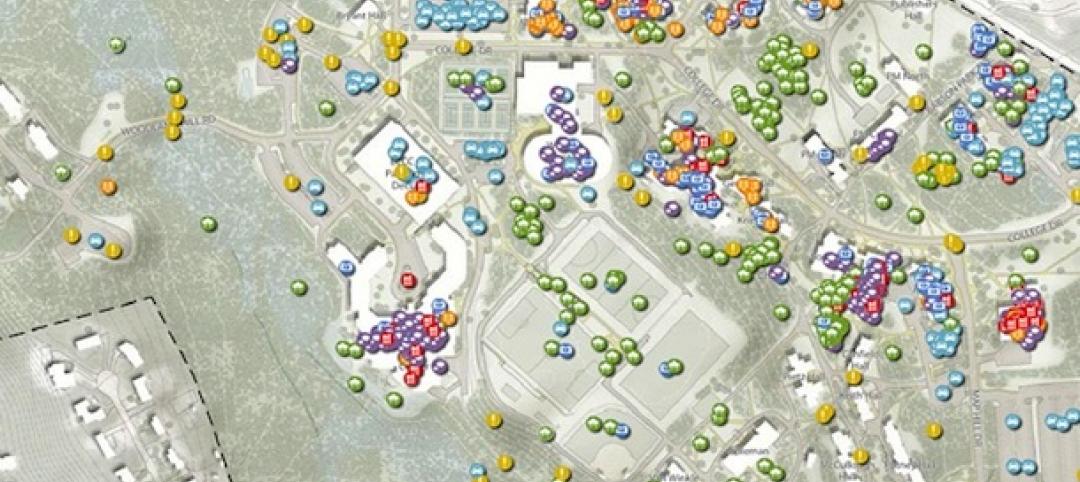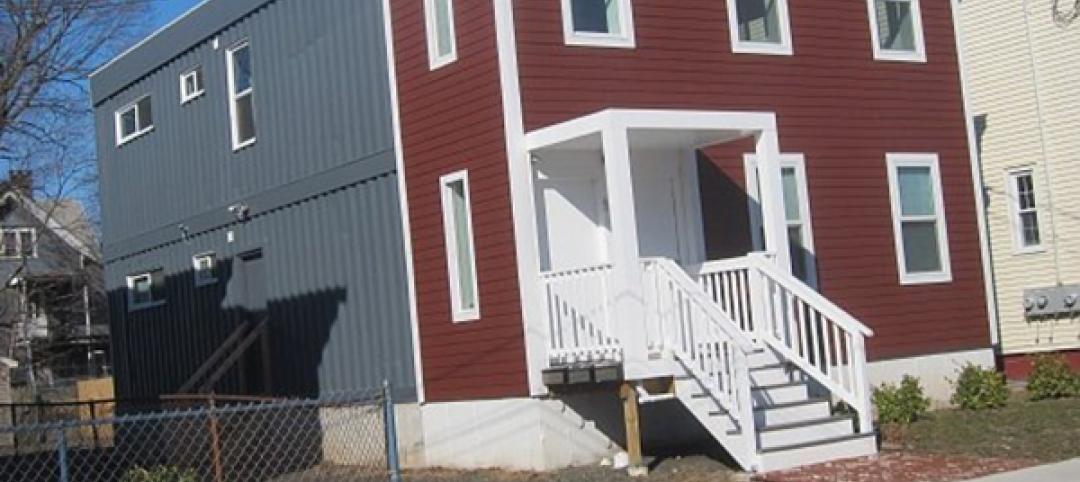Why did you refuse that?” George Costanza asks Jerry in a 1996 episode of “Seinfeld.” “Everybody loves a package.”
That might have been true back then, when Amazon was a mere online bookstore and receiving a package hadn’t become part of the daily routine. Today, anyone managing a decent-sized apartment or condo community may find the onslaught of packages overwhelming. With residents able to get delivery of anything from a pack of gum, to a $600 iPhone, to the refrigerated ingredients for that night’s dinner, multifamily complexes are awash in a swirling tide of cardboard boxes and plastic bags.
“The exponential growth of Amazon and other package delivery services has had a profound impact on the design of today’s multifamily communities,” says Rohit Anand, AIA, NCARB, Principal, KTGY Architecture + Planning. “Everything from groceries, to dry cleaning, to traditional online purchases is being delivered on a daily basis, leaving it up to property managers to determine how best to distribute them to residents.” In some cases, says Anand, residents expect around-the-clock access to their packages due to their busy schedules.
The solution: dedicated package delivery centers. Such facilities have been around for the last decade or so in some multifamily communities, but have grown in number and sophistication as the flood of packages has risen, and as residents’ reliance on them has gone up exponentially. Apartment managers and condominium associations also have to be concerned about legal liabilities associated with lost or damaged packages, and the mounting cost of staff hours devoted to accept and deliver packages.
DEFINING THE PACKAGE CENTER
A package center is a dedicated, secure space for delivered packages to be stored until residents can pick them up (or, in some cases, have them delivered directly to their units). Some centers take the form of a traditional mailroom, staffed with personnel to retrieve and manage packages for residents. But employing enough staff to allow residents 24/7 access to their packages can become difficult and expensive, so package delivery centers are automating.
Automated systems, such as those provided by Package Concierge or Parcel Pending, store packages in secure lockers. When a courier delivers a package, he/she will follow the integrated touchscreen’s prompts to enter the recipient’s name and select an appropriately sized locker. A locker will then open and the package can be placed inside.
Once the locker door is closed, a text message is sent automatically to the recipient alerting the person of the package’s arrival and providing a unique PIN. To get the package, the resident need only enter the PIN and the locker door will automatically open. Residents can access their packages any time, day or night.
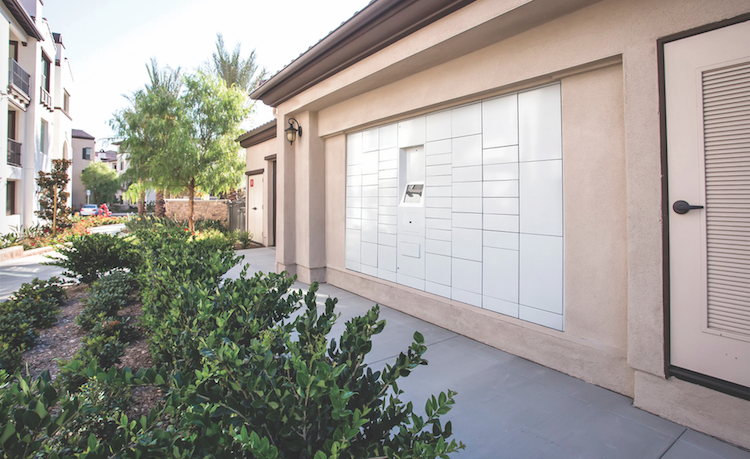 The Palisades at Sierra del Oro, Corona, Calif., developed by MBK Rental Living, uses an automated center to give residents 24/7 access to deliveries. Photo: MBK Rental Living
The Palisades at Sierra del Oro, Corona, Calif., developed by MBK Rental Living, uses an automated center to give residents 24/7 access to deliveries. Photo: MBK Rental Living
Due to the ever-increasing volume of deliveries, package centers are getting bigger and bigger. “Prior to the recession, we would allocate about one square foot of wall area per unit when designing a package room,” says Anand. “We later doubled that number to two square feet, and now are finding that we need to set aside three square feet per unit in some of the newest residential communities.”
Kass Management offers a service called Doorman, where packages are collected at an off-site location until residents can arrange for pickup. “We wanted a solution that addressed the need, yet was still economical,” says Kass’s Mark Durakovic, Principal.
Steven Fifield, President of Fifield Companies, says his company is even coordinating deliveries of “lifestyle-service” providers—Pilates instructors, dog groomers, personal chefs—who perform in-home services for apartment and condo dwellers.
Then there’s the proliferation of food-delivery services like Peapod and Blue Apron. To keep food from spoiling, package centers are starting to incorporate refrigerated rooms or lockers. RMK Management Corp. is retrofitting some properties with coolers and installing refrigeration rooms in new developments. “Refrigeration was virtually nonexistent before the recession,” Anand says. “Today, it is offered in approximately 10% of new residential communities.”
IT’S A COMMUNITY AFFAIR
Many rental and condominium communities integrate package centers into high-traffic areas. Not only does this make it easier for couriers to find the center and deliver packages, it also makes receiving a package a neighborly event.
If planned and designed appropriately, package centers can strengthen community ties among residents. The inclusion of communal tables and recycling bins gives residents the option to open their packages immediately while socializing with their neighbors. “Ultimately, it’s about the resident experience,” says Anand. “As designers, how can we create a community where serendipitous encounters lead to long-lasting relationships among residents?”
What about drone deliveries? Now that Amazon Prime Air and others are toying with the idea, figuring how best to integrate drone deliveries with package centers may prove to be a bit of a head-scratcher for designers. “Drones and packaging centers will need to be compatible,” says Rick Fletcher, Vice President of Sales & Marketing, MBK Homes.
But large-scale package delivery via drones does not appear to be imminent. There are plenty of logistical and regulatory hurdles Amazon and its online siblings will have to overcome before the skies will be filled with the sonorous buzz of package-laden drones.
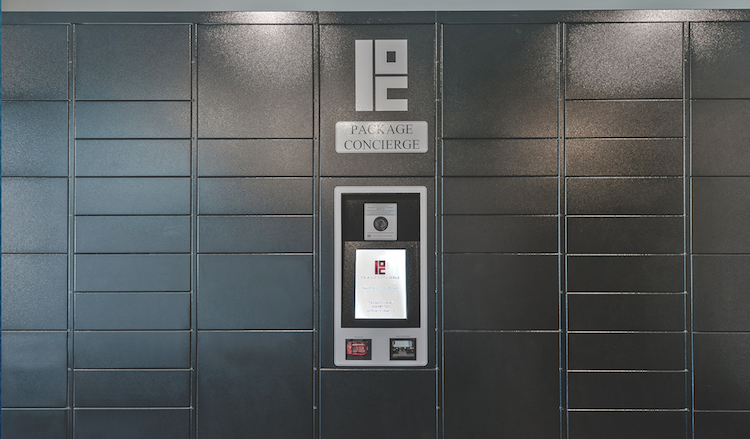 With the Package Concierge touchscreen at Village Plaza, Chapel Hill, N.C., designed by KTGY Architecture, the tenant follows the touchscreen prompts, enters a PIN, and the correct locker automatically opens. Photo: courtesy KTGY Architecture
With the Package Concierge touchscreen at Village Plaza, Chapel Hill, N.C., designed by KTGY Architecture, the tenant follows the touchscreen prompts, enters a PIN, and the correct locker automatically opens. Photo: courtesy KTGY Architecture
Related Stories
| Mar 17, 2014
Rem Koolhaas explains China's plans for its 'ghost cities'
China's goal, according to Koolhaas, is to de-incentivize migration into already overcrowded cities.
| Mar 13, 2014
Austria's tallest tower shimmers with striking 'folded façade' [slideshow]
The 58-story DC Tower 1 is the first of two high-rises designed by Dominique Perrault Architecture for Vienna's skyline.
| Mar 12, 2014
London grows up: 236 tall buildings to be added to skyline in coming decade, says think tank
The vast majority of high-rise projects in the works are residential towers, which could help tackle the city's housing crisis, according to a new report by New London Architecture.
| Mar 12, 2014
14 new ideas for doors and door hardware
From a high-tech classroom lockdown system to an impact-resistant wide-stile door line, BD+C editors present a collection of door and door hardware innovations.
| Feb 27, 2014
PocketCake lunches CPU designed for virtual reality simulations
The company's Virtual Reality Simulation Converter Assembly is three times more powerful than the average high-performance computer and allows for up to eight people to experience a virtual reality simulation at the same time.
| Feb 20, 2014
5 myths about cross laminated timber
A CLT expert clears up several common misconceptions and myths surrounding the use of wood as a building material.
| Feb 14, 2014
Must see: Developer stacks shipping containers atop grain silos to create student housing tower
Mill Junction will house up to 370 students and is supported by 50-year-old grain silos.
| Feb 14, 2014
Crowdsourced Placemaking: How people will help shape architecture
The rise of mobile devices and social media, coupled with the use of advanced survey tools and interactive mapping apps, has created a powerful conduit through which Building Teams can capture real-time data on the public. For the first time, the masses can have a real say in how the built environment around them is formed—that is, if Building Teams are willing to listen.
| Feb 5, 2014
7 towers that define the 'skinny skyscraper' boom [slideshow]
Recent advancements in structural design, combined with the loosening of density and zoning requirements, has opened the door for the so-called "superslim skyscraper."
| Feb 4, 2014
Must see: Student housing complex made with recycled shipping containers
Architect Christian Salvati's new structure is just the first step in bringing shipping container construction to New Haven, Conn.


